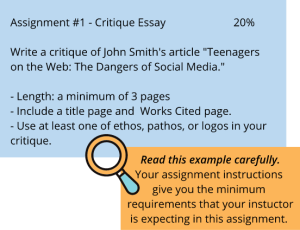What Is the Writing Assignment?
Writing Assignment
Writing assignments are an integral part of college education. They allow faculty to assess students’ progress in a course and help students develop skills and understanding of disciplinary knowledge. In addition, research has shown that written assignments are one of the most effective ways to learn in an academic context.
As a result, many instructors incorporate them into their courses. However, students often struggle with these types of assignments. Faculty sometimes fail to provide clear information about writing assignments Homework Market in the syllabus or during class. This can leave students uncertain of what to do and how to write. Students may also be confused about what types of information are most important for the assignment and how it fits into the course learning goals.
For example, when a professor asks students to compose an essay, they might not provide enough information about the essay’s purpose (e.g., review readings, analyze a debate, discuss an experiment). These are important aspects of the essay that students need to understand in order to compose well. Additionally, if a professor has a specific expectation that the essay be written in a certain style, they should specify this in their assignment instructions.
Some assignments are very explicit in their description of what is required, while others are more vague. For example, some instructors include a rubric with their assignments, which provides a concrete and measurable way for students to evaluate their writing. Other instructors simply state that the essay will be graded on a particular scale, leaving it to students to determine what components of the assignment are most important for meeting this expectation.

What Is the Writing Assignment?
Another important aspect of a writing assignment is the audience to whom it will be directed. Students need to be aware that they will likely write for someone other than the instructor, such as a CEO, coworker, or peer. Writing for a different audience can change the tone and focus of an essay. In addition, a different audience can inspire new ideas or questions about the topic.
Students are also unsure about how to analyze an assignment and the mechanics of it. This chapter offers resources to help you deconstruct and analyze an assignment task, as well as how to plan, research, paraphrase and synthesize. It also includes useful checklists to help you get started and then revise your work for clarity, effectiveness and impact.
A final point to consider is the amount of time needed for an assignment. Longer assignments may benefit from being broken down into smaller chunks or by being assigned over several weeks so that students can receive feedback and revise their work before submitting it. For more tips on this, see the Assignment Calculator resource from Empire State College. In the end, if you are unclear about an assignment, don’t hesitate to talk with your instructor or fellow students. They are accustomed to receiving questions about their assignments and should be willing to help you make sure that you understand the expectations.